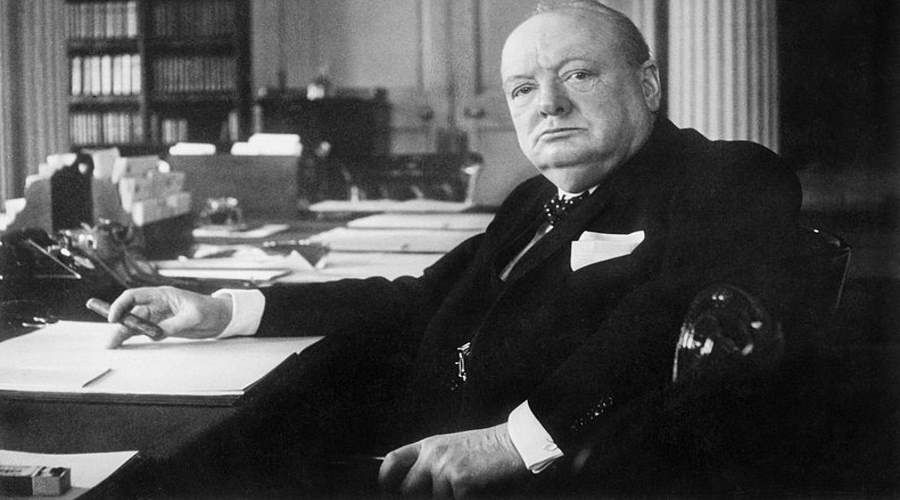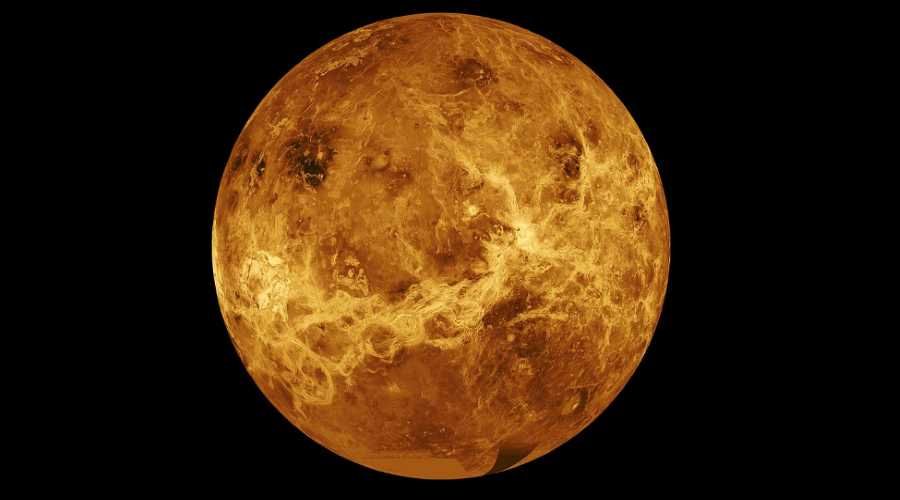The unknown face of Winston Churchill. His essay on extraterrestrial life was found
Winston Churchill is remembered as a brilliant politician and British statesman. However, recently found records show a hitherto unknown side of him – a visionary searching for extraterrestrial life.
Churchill had many talentsów. He was a war correspondent, a soldier, one of the most influential politiciansóin the 20th century. He also became known as a painter and writer. In 1953 he was awarded the Nobel Prize for literature. The justification states that he was honored for „great mastery of the worków of a historical and biographical nature, as well as a brilliant oratorical art, with the help of whichórej defended the highest human values”.
Churchill twice served as prime minister of the United Królestwo. He was also a respected diplomat and móby. But it also had another face, on whichóre light shed by one of his unpublished works entitled „Are we alone in the Universe?”.
„I am not conceited enough to think that my Sun is the only one in the great family of planets” – wrote Churchill just before the outbreak of World War II. The work of a prominent politician has been analyzed by równie an outstanding astrophysicist – Mario Livio, który after reading it did not hide his amazement.
Passionate about science and technology
A paper on the search for life beyond our planet has lain dusty for 78 years in the archives of the Churchill Museum in Fulton, Missouri. Churchill’s other scientific works are known, whichóre were written in the 1920s. i 30. and have dealt with evolution or thermonuclear fusion, but the one treating the Universe is unique because the thoughts contained therein reflect the thinking of wspóof modern man.
Churchill was passionate about science and technology. He regularly met with prominent scientists of his timeów. As one of the first premieróin appointed his scientific advisor. His reign supported the development ofój radar technology and the British nuclear program. They also financed the construction of the laboratorióin and telescopeów, which resulted in the post-war discoveries of the Britishóin many fields of science. Despite all these activities, his rediscovered work is astounding for the perspicacity of his mind and the accuracy of his insights into the future of astronomy.
– I was greatly surprised when an 11-page paper authored by Winston Churchill came into my hands. His deliberations contained in the work „Are we alone in the Universe?” as it were, anticipate our current efforts in the search for extraterrestrial life – admitted Livio.
The first draft of the work was written in 1939 and was probably to be published in a London newspaper „News of the Word”. Churchill naniósł changes in póź years 50., however, the paper never lived to see publication or scientific analysis. In the 1980s. was donated to the museum in Fulton.
Churchill’s reasoning is based on the so-called. Copernican principle, która mówi that the Earth and people, are in no wayób privileged in the Universe. The distinguished diplomat was aware of the vastness of the Universe and found it hard to believe that life on our planet was something special. He began by defining the most important feature of life, któAccording to him, the ability to reproduce.
Reflections on stars, planets and life
Churchill noted in his work that life as we know it requires the presence of water. This assumption also guides today’s astronomers, whoówho are looking for life in the Universe. He also defined what we today call the ecosphere – that is, a place in the orbit of the wokół stars, where conditions may be conducive to the origin of life. The most significant element of the ecosphere is the presence of liquid water. The theoretical assumptions of the ecosphere were presented almost 20 years póź later by Hubertus Strughold.
British politician also realized that the occurrence of life must be accompanied by an adequate temperature. „Life can survive only in places with temperatures ranging from a few degrees of frost to the boiling point of water” – Churchill wrote. He also wrote about the planets and their atmospheres. In his work, he explained why it is necessary to have sufficient gravity to maintain an atmosphere on the planet.
Taking all these elements into account, Churchill concluded that Mars and Venus were the only places in the Solar System, other than Earth, of course, where life could occur. In doing so, he eliminated Mercury because it was too close to the Sun and the temperature there would not allow life to occur, as well as other planets due to low temperatures.
„The sun is only one star in our galaxy, in which theórej there are millions of other stars” – Churchill wrote. He assumed that the wokół other stars can róalso occur planets. „Someóre will be of sufficient size to maintain an atmosphere and will be at the right distance from the parent star to maintain the right temperature” – he further wrote.
The question is still relevant
Churchill’s words proved to be prophetic. Several decades póLater, extrasolar planets began to be discovered en masse. Data from the Kepler Space Telescope show that there are more than a billion Earth-sized planets in the Milky Way alone, whichóre are located in the ecozone and circulate around theół stars similar to our Sun.
„One day, perhaps even in the not too distant future, it will be possible to podróThat to the Moon, or even Venus or Mars” – noted Churchill. „In the hundreds of thousands of galaxies in which theóof which there are millions of stars, there is a great chance that there is life around theół whichówhere the planet orbits, where conditions do not make life impossible” – he wrote in conclusion.
Nearly 80 years póź, the question of whichóre so obsessively asked by Churchill, is one of the hottest topicsóin scientific research. Studies of Venus show that conditions may have existed there in the past, które were conducive to the origin of life. Several rovers are searching for life on the Red Planetów. Astronomers believe that finding a traceóin life is only a matter of time.
In 2003, Winston Churchill was voted the most outstanding Briton of all time in a BBC television pollów.
At a time when most politiciansóin avoiding scientific interpretation or outright denial of reports from this environment, it is worth recalling the example of Churchill, który believed that the development ofój science and technology is essential for human development.





